[powerpress]
Episode 35- The Holy Rule of St. Benedict: A Spiritual Path for Today’s World with Fr. Mauritius Wilde O.S.B., 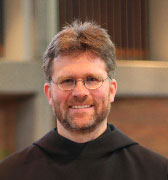 PhD.
PhD.
“The Life of St. Benedict pt 8”
We continue our conversation on the life of St. Benedict by using the biography penned by St. Gregory the Great. In this episode St. Benedict deals with the peaceful dwelling of God within the heart. The time of union for St. Benedict.
From the Life of Our Most Holy Father St. Benedict by St. Gregory the Great:
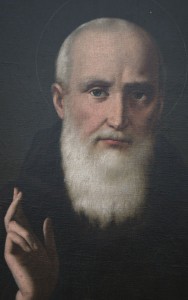
“This said, he forthwith returned to the solitude he loved so well, and lived there with himself, in the sight of Him who seeth all things. “
 For more information about the ministry of the the Missionary Benedictines of Christ the King Priory in Schuyler, Nebraska visit here:
For more information about the ministry of the the Missionary Benedictines of Christ the King Priory in Schuyler, Nebraska visit here:
This entry was posted on Friday, January 16th, 2015 at 1:26 pm
You can follow any responses to this entry through the RSS 2.0 feed.
[powerpress]
AR-SP2- THE GIFT OF HOLINESS AT CHRISTMAS w/ Fr. Mauritius Wilde O.S.B., PhD. 
This reflection was given during a special advent evening of prayer and meditation service at St. Margaret Mary’s Church, in Omaha, NE on December 16. Fr.Mauritius  was joined by Deacon James Keating PhD. This if the second of two talks
Father Mauritius Wilde, OSB, Ph.D., did his philosophical, theological and doctoral studies in Europe. He is the author of several books and directs retreats regularly. He serves as Prior of our monastery in Schuyler.
 For more information about the ministry of the the Missionary Benedictines of Christ the King Priory in Schuyler, Nebraska visit here:
For more information about the ministry of the the Missionary Benedictines of Christ the King Priory in Schuyler, Nebraska visit here:
This entry was posted on Wednesday, December 17th, 2014 at 2:27 pm
You can follow any responses to this entry through the RSS 2.0 feed.
Episode 33- The Holy Rule of St. Benedict: A Spiritual Path for Today’s World with Fr. Mauritius Wilde O.S.B.,  PhD.
PhD.
“The Life of St. Benedict pt 6”
We continue our conversation on the life of St. Benedict by using the biography penned by St. Gregory the Great.  In this episode St. Benedict deals with serious temptation.  If God calls you to restrain from something for the sake of His Kingdom, for the greater Love, this can include suffering and tension. We often try to avoid that.  St. Benedict desires to  be free and detached.  So Benedict takes action in order to be open to  grace and the love of God.   His method in this story may seem archaic to some, but it shouldn’t stop us from examining how we deal with temptation.
[powerpress]
From the Life of Our Most Holy Father St. Benedict by St. Gregory the Great:

 CHAPTER I.
The holy man being on a certain day alone, the tempter was at hand; for a little black bird, commonly called an ousel, began to fly about his face, and that so near as the holy man, if he would. might have taken it with his hand; but no sooner had he made the sign of the cross than the bird vanished. When presently so great a carnal temptation assailed him, that before the holy man had never felt the like. For the remembrance of a woman which some time he had seen, was so lively represented to his fancy by the wicked spirit, and so vehemently did her image inflame his breast with lustful desires, that almost overcome by pleasure, he was determining to leave the wilderness. But suddenly assisted with divine
grace he came to himself, and, seeing near him a thicket full of nettles and briars, he threw off his garments and cast himself naked into the midst of those sharp thorns and nettles, where he rolled himself so long, that, when he rose up, all his body was pitifully rent; thus by the wounds of his flesh he cured those of his soul, by turning pleasure into pain; and by the vehemence of outward torments he extinguished the unlawful flame which burnt within overcoming sin by changing the fire. After which time, as he himself related to his disciples, he was so free from the like temptation, that he never felt any such motion.
 For more information about the ministry of the the Missionary Benedictines of Christ the King Priory in Schuyler, Nebraska visit here:
For more information about the ministry of the the Missionary Benedictines of Christ the King Priory in Schuyler, Nebraska visit here:
This entry was posted on Thursday, December 4th, 2014 at 1:30 pm
You can follow any responses to this entry through the RSS 2.0 feed.
Episode 32- The Holy Rule of St. Benedict: A Spiritual Path for Today’s World with Fr. Mauritius Wilde O.S.B.,  PhD.
PhD.
“The Life of St. Benedict pt 5”
We continue our conversation on the life of St. Benedict by using the biography penned by St. Gregory the Great. This episode St. Benedict where he becomes free through detachment and becomes a light to others.  The moment in St. Benedict’s life is a great paradox.  The one who outwardly looks like the beast, inwardly reveals the saint.
[powerpress]
From the Life of Our Most Holy Father St. Benedict by St. Gregory the Great:

 CHAPTER I.
About the same time certain shepherds found him hid in a cave; who, at the first, spying him among the bushes, clothed in the skins of beasts, took him for some wild beast, but afterwards knowing him to be a servant of God, many of them were converted from their savage life to virtue. By this means his name began to be famous in the country, and many did resort unto him, bringing with them necessaries for his body, while they received from his lips the food of life.
 For more information about the ministry of the the Missionary Benedictines of Christ the King Priory in Schuyler, Nebraska visit here:
For more information about the ministry of the the Missionary Benedictines of Christ the King Priory in Schuyler, Nebraska visit here:
This entry was posted on Wednesday, November 26th, 2014 at 2:38 pm
You can follow any responses to this entry through the RSS 2.0 feed.
Episode 31- The Holy Rule of St. Benedict: A Spiritual Path for Today’s World with Fr. Mauritius Wilde O.S.B.,  PhD.
PhD.
“The Life of St. Benedict pt 4”
We continue our conversation on the life of St. Benedict by using the biography penned by St. Gregory the Great. This episode St. Benedict is visited a priest on Easter Sunday morning in the cave and is called from his seclusion.
[powerpress]
From the Life of Our Most Holy Father St. Benedict by St. Gregory the Great:

 CHAPTER I.
Now when it pleased Almighty God that Romanus should rest from his labours, and that the life of Benedict should be manifest to the world for an example to all men, that the candle set upon a candlestick might shine and give light to the whole Church of God, our Lord vouchsafed to appear to a certain Priest living far off, who had make ready his dinner for Easter Day, saying to him: “Thou hast prepared good cheer for thyself, and My servant in such a place is famished for hunger.†Who presently rose up, and on the solemn day of Easter went towards the place with such meat as he had provided for himself, where seeking the man of God, amongst craggy rocks, winding valleys and hollow pits he found him hid in a cave. Then after prayers, and blessing the Almighty Lord, they sat down, and after some spiritual discourse the Priest said: “Rise, and let us take our refection, for this is Easter Day.†To whom the man of God answered: “I know it is Easter, because I have found so much favour as to see thee.†(For not having a long time conversed with men, he did not know it was Easter Day.) The good Priest did therefore again affirm it, saying: “Truly this is the day of our Lord’s Resurrection, and therefore it is not fit that you should keep abstinence, and for this cause I am sent that we may eat together that which Almighty God hath bestowed on us.†Whereupon blessing God, they fell to their meat. Their discourse and dinner ended, the Priest returned to his Church.
 For more information about the ministry of the the Missionary Benedictines of Christ the King Priory in Schuyler, Nebraska visit here:
For more information about the ministry of the the Missionary Benedictines of Christ the King Priory in Schuyler, Nebraska visit here:
Tags: catholic, catholic podcast, catholic prayer, cathollc spirituality
This entry was posted on Tuesday, November 18th, 2014 at 12:22 pm
You can follow any responses to this entry through the RSS 2.0 feed.
Episode 30- The Holy Rule of St. Benedict: A Spiritual Path for Today’s World with Fr. Mauritius Wilde O.S.B.,  PhD.
PhD.
“The Life of St. Benedict pt 3”
We continue our conversation on the life of St. Benedict by using the biography penned by St. Gregory the Great. This episode brings to his interaction with the monk called Romanus and the breaking of the bell outside the cave.
[powerpress]
From the Life of Our Most Holy Father St. Benedict by St. Gregory the Great:

 CHAPTER I.
As he was travelling to this place, a certain monk called Romanus met him and asked whither he was going. Having understood his intention, he both kept it secret and afforded him help, moreover he gave him a religious habit and assisted him in all things. The man of God being come to this place lived for the space of three years in an obscure cave, unknown to any man except Romanus the Monk, who lived not far off in a Monastery governed by Father Deodatus. But he would piously steal forth, and on certain days bring to Benedict a loaf of bread which he had spared from his own allowance. But there being no way to the cave from Romanus his cell by reason of a steep and high rock which hung over it, Romanus used to let down the loaf by a long cord to which also he fastened a little bell, that by the sound of it, the man of God might know when Romanus brought him the bread, and going out may receive it. But the old enemy, envying the charity of the one and the refection of the other, when on a certain day he beheld the bread let down in this manner, threw a stone and brake the bell. Notwithstanding, Romanus afterwards failed not to assist him in the best manner he was able.
 For more information about the ministry of the the Missionary Benedictines of Christ the King Priory in Schuyler, Nebraska visit here:
For more information about the ministry of the the Missionary Benedictines of Christ the King Priory in Schuyler, Nebraska visit here:
Tags: catholic, catholic podcast, catholic prayer, cathollc spirituality
This entry was posted on Friday, October 10th, 2014 at 2:00 pm
You can follow any responses to this entry through the RSS 2.0 feed.
Episode 29- The Holy Rule of St. Benedict: A Spiritual Path for Today’s World with Fr. Mauritius Wilde O.S.B.,  PhD.
PhD.
“The Life of St. Benedict pt 2”
We begin the reflection of the life of St. Benedict by using the biography penned by St. Gregory the Great. This episode continues the teaching on detachment, particularly from our earthly mothers.
[powerpress]
From the Life of Our Most Holy Father St. Benedict by St. Gregory the Great:

 CHAPTER I.
Benedict having now left the schools resolved to betake himself to the desert, accompanied only by his nurse who most tenderly loved him. Coming therefore to a place called Affile, and remaining for some time in the Church of St. Peter by the charitable invitement of many virtuous people who lived there for devotion, so it chanced that his nurse borrowed of a neighbour a sieve to cleanse wheat, which being left carelessly upon the table was found broken in two pieces. Therefore on her return finding it broke, she began to weep bitterly because it was only lent her. But the religious and pious boy, Benedict, seeing his nurse lament was moved with compassion, and taking with him the two pieces of the broken sieve, with tears he gave himself to prayer, which no sooner ended, but he found the sieve whole, and found not any sign that it had been broken. Then presently he restored the sieve which had been broken, whole to his nurse, to her exceeding comfort. This matter was divulged unto all that lived thereabout, and so much admired by all, that the inhabitants of that place caused the sieve to be hanged up in the Church porch, that not only those present, but all posterity might know with how great gifts of grace Benedict had been endowed from the beginning of his conversion. The sieve remained to be seen for many years after, and hung over the Church door even until the times of the Longobards.
But Benedict more desirous to suffer afflictions than covetous of praise; and rather willing to undergo labours for the honour of God, than to be extolled with the favours of this world, fled secretly from his nurse to a remote place in the desert called Subiaco, distant about forty miles from Rome, in which a fountain springing with cool and crystal waters, extendeth itself at first into a broad lake, and running farther with increase of waters becometh at the last a river.
 For more information about the ministry of the the Missionary Benedictines of Christ the King Priory in Schuyler, Nebraska visit here:
For more information about the ministry of the the Missionary Benedictines of Christ the King Priory in Schuyler, Nebraska visit here:
Tags: catholic, catholic podcast, catholic prayer, cathollc spirituality
This entry was posted on Saturday, October 4th, 2014 at 3:36 pm
You can follow any responses to this entry through the RSS 2.0 feed.
Dr. Matthew Bunson discusses the life, times and teachings of St. Hildegard von Bingen
Born: September 16, 1098, Bermersheim vor der Höhe, Germany
Died: September 17, 1179, Bingen am Rhein, Germany
Film music credits: Vision – From the Life of Hildegard von Bingen
From Vatican.va, an excerpt from the teachings of Pope Benedict XVIÂ
APOSTOLIC LETTER
Proclaiming Saint Hildegard of Bingen,
professed nun of the Order of Saint Benedict,
a Doctor of the Universal Church
5. Hildegard’s anthropology begins from the biblical narrative of the creation of man (Gen 1:26), made in the image and likeness of God. Man, according to Hildegard’s biblically inspired cosmology, contains all the elements of the world because the entire universe is recapitulated in him; he is formed from the very matter of creation. The human person can therefore consciously enter into a relationship with God. This does not happen through a direct vision, but, in the words of Saint Paul, as “in a mirror†(1 Cor 13:12). The divine image in man consists in his rationality, structured as intellect and will. Thanks to his intellect, man can distinguish between good and evil; thanks to his will, he is spurred to action.
Human beings are seen as a unity of body and soul. The German mystic shows a positive appreciation of corporeity and providential value is given even to the body’s weaknesses. The body is not a weight from which to be delivered. Although human beings are weak and frail, this “teaches†them a sense of creatureliness and humility, protecting them from pride and arrogance. Hildegard contemplated in a vision the souls of the blessed in paradise waiting to be rejoined to their bodies. Our bodies, like the body of Christ, are oriented to the glorious resurrection, to the supreme transformation for eternal life. The very vision of God, in which eternal life consists, cannot be definitively achieved without the body.
The human being exists in both the male and female form. Hildegard recognized that a relationship of reciprocity and a
substantial equality between man and woman is rooted in this ontological structure of the human condition. Nevertheless the mystery of sin also dwells in humanity, and was manifested in history for the first time precisely in the relationship between Adam and Eve. Unlike other medieval authors who saw Eve’s weakness as the cause of the Fall, Hildegard places it above all in Adam’s immoderate passion for her.
Even in their condition as sinners, men and women continue to be the recipients of God’s love, because God’s love is unconditional and, after the Fall, acquires the face of mercy. Even the punishment that God inflicts on the man and woman brings out the merciful love of the Creator. In this regard, the most precise description of the human creature is that of someone on a journey, homo viator. On this pilgrimage towards the homeland, the human person is called to a struggle in order constantly to choose what is good and avoid evil.
The constant choice of good produces a virtuous life. The Son of God made man is the subject of all virtues, therefore the imitation of Christ consists precisely in living a virtuous life in communion with Christ. The power of virtue derives from the Holy Spirit, poured into the hearts of believers, who brings about upright behaviour. This is the purpose of human existence. In this way man experiences his Christ-like perfection.
6. So as to achieve this goal, the Lord has given his Church the sacraments. Salvation and the perfection of the human being are not achieved through the effort of the will alone, but rather through the gifts of grace that God grants in the Church.
The Church herself is the first sacrament that God places in the world so that she may communicate salvation to mankind. The Church, built up from “living soulsâ€, may rightly be considered virgin, bride and mother, and thus resembles closely the historical and mystical figure of the Mother of God. The Church communicates salvation first of all by keeping and proclaiming the two great mysteries of the Trinity and the Incarnation, which are like the two “primary sacramentsâ€; and then through administration of the other sacraments. The summit of the sacramental nature of the Church is the Eucharist. The sacraments produce the sanctification of believers, salvation and purification from sin, redemption and charity and all the other virtues. However, to repeat, the Church lives because God within her has manifested his intraTrinitarian love, which was revealed in Christ. The Lord Jesus is the mediator par excellence. From the Trinitarian womb he comes to encounter man and from Mary’s womb he encounters God. As the Son of God, he is love incarnate; as the Son of Mary, he is humanity’s representative before the throne of God.
The human person can have an experience of God. Relationship with him, in fact, is not lived solely in the sphere of rationality, but involves the person totally. All the external and internal senses of the human being are involved in the experience of God. “But man was created in the image and likeness of God, so that he might act through the five bodily senses; he is not divided by them, rather through them he is wise, knowledgeable and intelligent in doing his work (…). For this very reason, because man is wise, knowledgeable and intelligent, he knows creation; he knows God — whom he cannot see except by faith — through creation and his great works, even if with his five senses he barely comprehends them†(Explanatio Symboli Sancti Athanasii in PL 197, 1073). This experiential process finds once again, its fullness in participation in the sacraments.
Hildegard also saw contradictions in the lives of individual members of the faithful and reported the most deplorable situations. She emphasized in particular that individualism in doctrine and in practice on the part of both lay people and ordained ministers is an expression of pride and constitutes the main obstacle to the Church’s evangelizing mission to non-Christians.
One of the salient points of Hildegard’s magisterium was her heartfelt exhortation to a virtuous life addressed to consecrated men and women. Her understanding of the consecrated life is a true “theological metaphysicsâ€, because it is firmly rooted in the theological virtue of faith, which is the source and constant impulse to full commitment in obedience, poverty and chastity. In living out the evangelical counsels, the consecrated person shares in the experience of Christ, poor, chaste and obedient, and follows in his footsteps in daily life. This is fundamental in the consecrated life.
7. Hildegard’s eminent doctrine echoes the teaching of the Apostles, the Fathers and writings of her own day, while it finds a constant point of reference in the Rule of Saint Benedict. The monastic liturgy and the interiorization of sacred Scripture are central to her thought which, focusing on the mystery of the Incarnation, is expressed in a profound unity of style and inner content that runs through all her writings.
The teaching of the holy Benedictine nun stands as a beacon for homo viator. Her message appears extraordinarily timely in today’s world, which is especially sensitive to the values that she proposed and lived. For example, we think of Hildegard’s charismatic and speculative capacity, which offers a lively incentive to theological research; her reflection on the mystery of Christ, considered in its beauty; the dialogue of the Church and theology with culture, science and contemporary art; the ideal of the consecrated life as a possibility for human fulfilment; her appreciation of the liturgy as a celebration of life; her understanding of the reform of the Church, not as an empty change of structure but as conversion of heart; her sensitivity to nature, whose laws are to be safeguarded and not violated.
For these reasons the attribution of the title of Doctor of the Universal Church to Hildegard of Bingen has great significance for today’s world and an extraordinary importance for women. In Hildegard are expressed the most noble values of womanhood: hence the presence of women in the Church and in society is also illumined by her presence, both from the perspective of scientific research and that of pastoral activity. Her ability to speak to those who were far from the faith and from the Church make Hildegard a credible witness of the new evangelization.
By virtue of her reputation for holiness and her eminent teaching, on 6 March 1979 Cardinal Joseph Höffner, Archbishop of Cologne and President of the German Bishops’ Conference, together with the Cardinals, Archbishops and Bishops of the same Conference, including myself as Cardinal Archbishop of Munich and Freising, submitted to Blessed John Paul II the request that Hildegard of Bingen be declared a Doctor of the Universal Church. In that petition, the Cardinal emphasized the soundness of Hildegard’s doctrine, recognized in the twelfth century by Pope Eugene III, her holiness, widely known and celebrated by the people, and the authority of her writings. As time passed, other petitions were added to that of the German Bishops’ Conference, first and foremost the petition from the nuns of Eibingen Monastery, which bears her name. Thus, to the common wish of the People of God that Hildegard be officially canonized, was added the request that she be declared a “Doctor of the Universal Churchâ€.
With my consent, therefore, the Congregation for the Causes of Saints diligently prepared a Positio super Canonizatione et Concessione tituli Doctoris Ecclesiae Universalis for the Mystic of Bingen. Since this concerned a famous teacher of theology who had been the subject of many authoritative studies, I granted the dispensation from the measures prescribed by article 73 of the Apostolic Constitution Pastor Bonus. The cause was therefore examined and approved by the Cardinals and Bishops, who met in Plenary Session on 20 March 2012. The proponent (ponens) of the cause was His Eminence Cardinal Angelo Amato, Prefect of the Congregation for the Causes of Saints. At the audience of 10 May 2012, Cardinal Amato informed us in detail about the status quaestionis and the unanimous vote of the Fathers at the above-mentioned Plenary Session of the Congregation for the Causes of Saints. On 27 May 2012, Pentecost Sunday, I had the joy of announcing to the crowd of pilgrims from all over the world gathered in Saint Peter’s Square the news of the conferral of the title of Doctor of the Universal Church upon Saint Hildegard of Bingen and Saint John of Avila at the beginning of the Assembly of the Synod of Bishops and on the eve of the Year of Faith.
Today, with the help of God and the approval of the whole Church, this act has taken place. In Saint Peter’s Square, in the presence of many Cardinals and Prelates of the Roman Curia and of the Catholic Church, in confirming the acts of the process and willingly granting the desires of the petitioners, I spoke the following words in the course of the Eucharistic sacrifice: “Fulfilling the wishes of numerous brethren in the episcopate, and of many of the faithful throughout the world, after due consultation with the Congregation for the Causes of Saints, with certain knowledge and after mature deliberation, with the fullness of my apostolic authority I declare Saint John of Avila, diocesan priest, and Saint Hildegard of Bingen, professed nun of the Order of Saint Benedict, to be Doctors of the Universal Church. In the name of the Father, and of the Son, and of the Holy Spirit.
For more visit Vatican.va
For more from Dr. Matthew Bunson check out his Discerning Hearts page
Dr. Matthew Bunson, Senior Fellow of the St. Paul Center for Biblical Theology, is one of the United States’ leading authorities on the papacy and the Church.
His books include: The Encyclopedia of Catholic History; The Encyclopedia of Saints; Papal Wisdom; All Shall Be Well; Encyclopedia of the Roman Empire; and The Angelic Doctor: The Life and World of St. Thomas Aquinas; The Pope Encyclopedia; We Have a Pope! Benedict XVI, the first Catholic biography of the Holy Father in the English language; the Encyclopedia of U.S. Catholic History; Pope Francis. His also the editor of OSV’s “The Catholic Answer” magazine.
Tags: catholic, catholic podcast, catholic prayer, cathollc spirituality
This entry was posted on Thursday, September 25th, 2014 at 2:26 pm
You can follow any responses to this entry through the RSS 2.0 feed.
Bruce and I had a great conversation with Mike Aquilina about the great St. Benedict.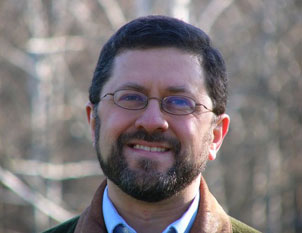
[powerpress]
Here is a teaching from another Benedict our Holy Father Pope Benedict XVI
St Peter’s Square
Wednesday, 9 April 2008
Dear Brothers and Sisters,
Today, I would like to speak about Benedict, the Founder of Western Monasticism and also the Patron of my Pontificate. I begin with words that St Gregory the Great wrote about St Benedict: “The man of God who shone on this earth among so many miracles was just as brilliant in the eloquent exposition of his teaching” (cf. Dialogues II, 36). The great Pope wrote these words in 592 A.D. The holy monk, who had died barely 50 years earlier, lived on in people’s memories and especially in the flourishing religious Order he had founded. St Benedict of Norcia, with his life and his work, had a fundamental influence on the development of European civilization and culture. The most important source on Benedict’s life is the second book of St Gregory the Great’s Dialogues. It is not a biography in the classical sense. In
accordance with the ideas of his time, by giving the example of a real man – St Benedict, in this case – Gregory wished to illustrate the ascent to the peak of contemplation which can be achieved by those who abandon themselves to God. He therefore gives us a model for human life in the climb towards the summit of perfection. St Gregory the Great also tells in this book of the Dialogues of many miracles worked by the Saint, and here too he does not merely wish to recount something curious but rather to show how God, by admonishing, helping and even punishing, intervenes in the practical situations of man’s life. Gregory’s aim was to demonstrate that God is not a distant hypothesis placed at the origin of the world but is present in the life of man, of every man.
This perspective of the “biographer” is also explained in light of the general context of his time: straddling the fifth and sixth centuries, “the world was overturned by a tremendous crisis of values and institutions caused by the collapse of the Roman Empire, the invasion of new peoples and the decay of morals”. But in this terrible situation, here, in this very city of Rome, Gregory presented St Benedict as a “luminous star” in order to point the way out of the “black night of history” (cf. John Paul II, 18 May 1979).
In fact, the Saint’s work and particularly his Rule were to prove heralds of an authentic spiritual leaven which, in the course of the centuries, far beyond the boundaries of his country and time, changed the face of Europe following the fall of the political unity created by the Roman Empire, inspiring a new spiritual and cultural unity, that of the Christian faith shared by the peoples of the Continent. This is how the reality we call “Europe” came into being.
St Benedict was born around the year 480. As St Gregory said, he came “ex provincia Nursiae” – from the province of Norcia. His well-to-do parents sent him to study in Rome. However, he did not stay long in the Eternal City. As a fully plausible explanation, Gregory mentions that the young Benedict was put off by the dissolute lifestyle of many of his fellow students and did not wish to make the same mistakes. He wanted only to please God: “soli Deo placere desiderans” (II Dialogues, Prol. 1). Thus, even before he finished his studies, Benedict left Rome and withdrew to the solitude of the mountains east of Rome. After a short stay in the village of Enfide (today, Affile), where for a time he lived with a “religious community” of monks, he became a hermit in the neighbouring locality of Subiaco. He lived there completely alone for three years in a cave which has been the heart of a Benedictine Monastery called the “Sacro Speco” (Holy Grotto) since the early Middle Ages. The period in Subiaco, a time of solitude with God, was a time of maturation for Benedict. It was here that he bore and overcame the three fundamental temptations of every human being: the temptation of self-affirmation and the desire to put oneself at the centre, the temptation of sensuality and, lastly, the temptation of anger and revenge. In fact, Benedict was convinced that only after overcoming these temptations would he be able to say a useful word to others about their own situations of neediness. Thus, having tranquilized his soul, he could be in full control of the drive of his ego and thus create peace around him. Only then did he decide to found his first monasteries in the Valley of the Anio, near Subiaco.
In the year 529, Benedict left Subiaco and settled in Monte Cassino. Some have explained this move as an escape from the intrigues of an envious local cleric. However, this attempt at an explanation hardly proved convincing since the latter’s sudden death did not induce Benedict to return (II Dialogues, 8). In fact, this decision was called for because he had entered a new phase of inner maturity and monastic experience. According to Gregory the Great, Benedict’s exodus from the remote Valley of the Anio to Monte Cassio – a plateau dominating the vast surrounding plain which can be seen from afar – has a symbolic character: a hidden monastic life has its own raison d’être but a monastery also has its public purpose in the life of the Church and of society, and it must give visibility to the faith as a force of life. Indeed, when Benedict’s earthly life ended on 21 March 547, he bequeathed with his Rule and the Benedictine family he founded a heritage that bore fruit in the passing centuries and is still bearing fruit throughout the world. (more…)
Tags: benedictines, catholic, catholic podcast, catholic prayer, cathollc spirituality, Europe, mike aquilina, Roman Empire, st benedict, st. paul center for biblical theology
This entry was posted on Friday, July 11th, 2014 at 5:02 am
You can follow any responses to this entry through the RSS 2.0 feed.
Novena to St. Benedict Day 9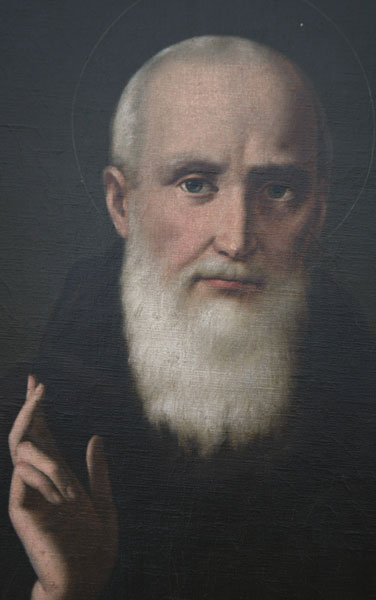
[powerpress]
In the Holy Rule, St. Benedict you have said:
As there is a harsh and evil zeal which separates from God and leads to hell, so there is a virtuous zeal which separates from vice and leads to God and life everlasting.
Let the monks, therefore, practice this zeal with most ardent love; namely, that in honor they forerun one another (cf Rom 12:10). Let them bear their infirmities, whether of body or mind, with the utmost patience; let them vie with one another in obedience. Let no one follow what he thinks useful to himself, but rather to another. Let them practice fraternal charity with a chaste love.
Let them fear God and love their Abbot with sincere and humble affection; let them prefer nothing whatever to Christ, and my He lead us all together to life everlasting. Â (Holy Rule 72)
Glorious Saint Benedict,
sublime model of virtue, pure vessel of God’s grace!
Behold me humbly kneeling at your feet.
I implore you in your loving kindness to pray for me before the throne of God.
To you I have recourse in the dangers that daily surround me.
Shield me against my selfishness and my indifference to God and to my neighbor.
Inspire me to imitate you in all things.
May your blessing be with me always, so that I may see and serve Christ in others and work for His kingdom.
Graciously obtain for me from God those favors and graces which I need so much in the trials, miseries and afflictions of life.
Your heart was always full of love, compassion and mercy toward those who were afflicted or troubled in any way.
You never dismissed without consolation and assistance anyone who had recourse to you.
I therefore invoke your powerful intercession, confident in the hope that you will hear my prayers and obtain for me the special grace and favor I earnestly implore.
{mention your petition}
Help me, great Saint Benedict, to live and die as a faithful child of God, to run in the sweetness of His loving will, and to attain the eternal happiness of heaven.
Amen.
O Holy Father, St. Benedict, pray for us.
Tags: catholic, catholic podcast, catholic prayer, cathollc spirituality
This entry was posted on Thursday, July 10th, 2014 at 6:56 am
You can follow any responses to this entry through the RSS 2.0 feed.
Novena to St. Benedict Day 8 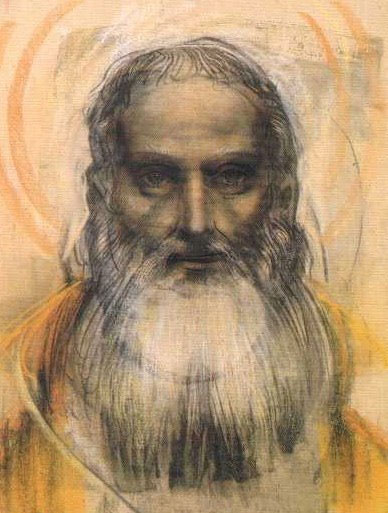
[powerpress]
In the Holy Rule, St. Benedict you have said:
If we do not venture to approach men who are in power, except with humility and reverence, when we wish to ask a favor, how much must we beseech the Lord God of all things with all humility and purity of devotion? And let us be assured that it is not in many words, but in the purity of heart and tears of compunction that we are heard. For this reason prayer ought to be short and pure, unless, perhaps it is lengthened by the inspiration of divine grace. At the community exercises, however, let the prayer always be short, and the sign having been given by the Superior, let all rise together. Â (Holy Rule 20)
Glorious Saint Benedict,
sublime model of virtue, pure vessel of God’s grace!
Behold me humbly kneeling at your feet.
I implore you in your loving kindness to pray for me before the throne of God.
To you I have recourse in the dangers that daily surround me.
Shield me against my selfishness and my indifference to God and to my neighbor.
Inspire me to imitate you in all things.
May your blessing be with me always, so that I may see and serve Christ in others and work for His kingdom.
Graciously obtain for me from God those favors and graces which I need so much in the trials, miseries and afflictions of life.
Your heart was always full of love, compassion and mercy toward those who were afflicted or troubled in any way.
You never dismissed without consolation and assistance anyone who had recourse to you.
I therefore invoke your powerful intercession, confident in the hope that you will hear my prayers and obtain for me the special grace and favor I earnestly implore.
{mention your petition}
Help me, great Saint Benedict, to live and die as a faithful child of God, to run in the sweetness of His loving will, and to attain the eternal happiness of heaven.
Amen.
O Holy Father, St. Benedict, pray for us.
Tags: catholic, catholic podcast, catholic prayer, cathollc spirituality
This entry was posted on Wednesday, July 9th, 2014 at 6:27 am
You can follow any responses to this entry through the RSS 2.0 feed.
Novena to St. Benedict Day 7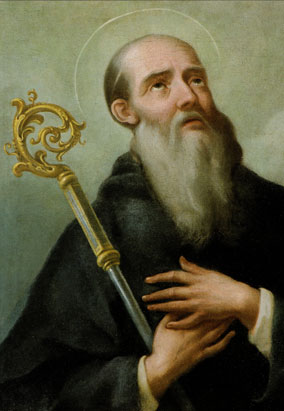
[powerpress]
In the Holy Rule, St. Benedict you have said:
We believe that God is present everywhere and that the eyes of the Lord behold the good and the bad in every place (cf Prov 15:3). Let us firmly believe this, especially when we take part in the Work of God. Let us, therefore, always be mindful of what the Prophet says, “Serve the Lord with fear” (Ps 2:11). And again, “Sing wisely” (Ps 46[47]:8). And, “I will sing praise to Thee in the sight of the angels” (Ps 137[138]:1). Therefore, let us consider how it becomes us to behave in the sight of God and His angels, and let us so stand to sing, that our mind may be in harmony with our voice. Â (Holy Rule 19)
Glorious Saint Benedict,
sublime model of virtue, pure vessel of God’s grace!
Behold me humbly kneeling at your feet.
I implore you in your loving kindness to pray for me before the throne of God.
To you I have recourse in the dangers that daily surround me.
Shield me against my selfishness and my indifference to God and to my neighbor.
Inspire me to imitate you in all things.
May your blessing be with me always, so that I may see and serve Christ in others and work for His kingdom.
Graciously obtain for me from God those favors and graces which I need so much in the trials, miseries and afflictions of life.
Your heart was always full of love, compassion and mercy toward those who were afflicted or troubled in any way.
You never dismissed without consolation and assistance anyone who had recourse to you.
I therefore invoke your powerful intercession, confident in the hope that you will hear my prayers and obtain for me the special grace and favor I earnestly implore.
{mention your petition}
Help me, great Saint Benedict, to live and die as a faithful child of God, to run in the sweetness of His loving will, and to attain the eternal happiness of heaven.
Amen.
O Holy Father, St. Benedict, pray for us.
Tags: catholic, catholic podcast, catholic prayer, cathollc spirituality
This entry was posted on Tuesday, July 8th, 2014 at 6:09 am
You can follow any responses to this entry through the RSS 2.0 feed.
Novena to St. Benedict Day 6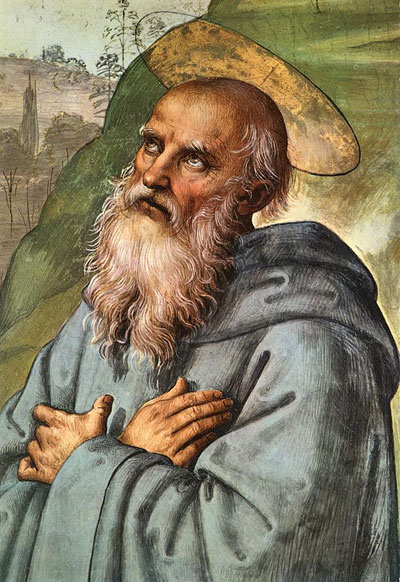
[powerpress]
In the Holy Rule, St. Benedict you have said:
The twelfth degree of humility is, when a monk is not only humble of heart, but always let it appear also in his whole exterior to all that see him; … and always saying to himself in his heart what the publican in the Gospel said, with his eyes fixed on the ground: “Lord, I am a sinner and not worthy to lift up mine eyes to heaven” (Lk 18:13)…
Having, therefore, ascended all these degrees of humility, the monk will presently arrive at that love of God, which being perfect, cast out fear (1 Jn 4:18). In virtue of this love all things which at first he observed not without fear, he will now begin to keep without any effort, and as it were, naturally by force of habit, no longer from the fear of hell, but from the love of Christ, from the very habit of good and the pleasure in virtue. May the Lord be pleased to manifest all this by His Holy Spirit in His laborer now cleansed from vice and sin. Â (Holy Rule 7)
Glorious Saint Benedict,
sublime model of virtue, pure vessel of God’s grace!
Behold me humbly kneeling at your feet.
I implore you in your loving kindness to pray for me before the throne of God.
To you I have recourse in the dangers that daily surround me.
Shield me against my selfishness and my indifference to God and to my neighbor.
Inspire me to imitate you in all things.
May your blessing be with me always, so that I may see and serve Christ in others and work for His kingdom.
Graciously obtain for me from God those favors and graces which I need so much in the trials, miseries and afflictions of life.
Your heart was always full of love, compassion and mercy toward those who were afflicted or troubled in any way.
You never dismissed without consolation and assistance anyone who had recourse to you.
I therefore invoke your powerful intercession, confident in the hope that you will hear my prayers and obtain for me the special grace and favor I earnestly implore.
{mention your petition}
Help me, great Saint Benedict, to live and die as a faithful child of God, to run in the sweetness of His loving will, and to attain the eternal happiness of heaven.
Amen.
O Holy Father, St. Benedict, pray for us.
Tags: catholic, catholic podcast, catholic prayer, cathollc spirituality
This entry was posted on Monday, July 7th, 2014 at 6:37 am
You can follow any responses to this entry through the RSS 2.0 feed.
Novena to St. Benedict Day 5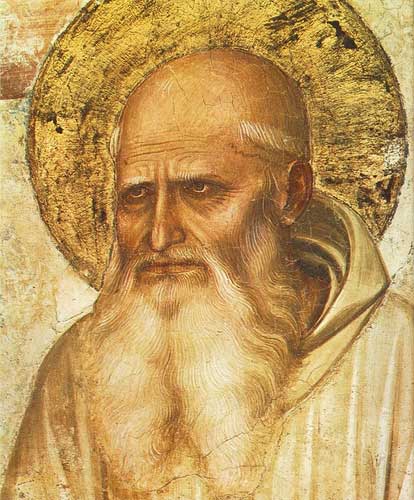
[powerpress]
In the Holy Rule, St. Benedict you have said:
The second degree of humility is, when a man loves not his own will, nor is pleased to fulfill his own desires but by his deeds carries out that word of the Lord which says: “I came not to do My own will but the will of Him that sent Me” (Jn 6:38). It is likewise said: “Self-will has its punishment, but necessity wins the crown.”
The third degree of humility is, that for the love of God a man subject himself to a Superior in all obedience, imitating the Lord, of whom the Apostle says: “He became obedient unto death” (Phil 2:8).
The fourth degree of humility is, that, if hard and distasteful things are commanded, Â even though injuries are inflicted, he accept them with patience and even temper, and not grow weary or give up, but hold out, as the Scripture says: “He that shall persevere to the end shall be saved” (Mt 10:22). Â (Holy Rule 7)
Glorious Saint Benedict,
sublime model of virtue, pure vessel of God’s grace!
Behold me humbly kneeling at your feet.
I implore you in your loving kindness to pray for me before the throne of God.
To you I have recourse in the dangers that daily surround me.
Shield me against my selfishness and my indifference to God and to my neighbor.
Inspire me to imitate you in all things.
May your blessing be with me always, so that I may see and serve Christ in others and work for His kingdom.
Graciously obtain for me from God those favors and graces which I need so much in the trials, miseries and afflictions of life.
Your heart was always full of love, compassion and mercy toward those who were afflicted or troubled in any way.
You never dismissed without consolation and assistance anyone who had recourse to you.
I therefore invoke your powerful intercession, confident in the hope that you will hear my prayers and obtain for me the special grace and favor I earnestly implore.
{mention your petition}
Help me, great Saint Benedict, to live and die as a faithful child of God, to run in the sweetness of His loving will, and to attain the eternal happiness of heaven.
Amen.
O Holy Father, St. Benedict, pray for us.
Tags: catholic, catholic podcast, catholic prayer, cathollc spirituality
This entry was posted on Sunday, July 6th, 2014 at 5:39 am
You can follow any responses to this entry through the RSS 2.0 feed.
Novena to St. Benedict Day 4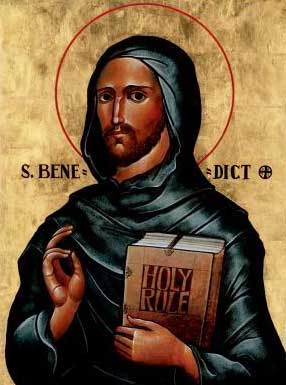
[powerpress]
In the Holy Rule, St. Benedict you have said:
The first degree of humility, then, is that a man always have the fear of God before his eyes (cf Ps 35[36]:2), shunning all forgetfulness and that he be ever mindful of all that God has commanded, that he always consider in his mind how those who despise God will burn in hell for their sins, and that life everlasting is prepared for those who fear God. And while he guards himself evermore against sin and vices of thought, word, deed, and self-will, let him also hasten to cut off the desires of the flesh.
Let a man consider that God always sees him from Heaven, that the eye of God beholds his works everywhere, and that the angels report them to Him every hour. The Prophet tells us this when he shows God thus ever present in our thoughts, saying: “The searcher of hearts and reins is God” (Ps 7:10)…Therefore, in order that he may always be on his guard against evil thoughts, let the humble brother always say in his heart: “Then I shall be spotless before Him, if I shall keep myself from iniquity” (Ps 17[18]:24) . Â (Holy Rule 7)
Glorious Saint Benedict,
sublime model of virtue, pure vessel of God’s grace!
Behold me humbly kneeling at your feet.
I implore you in your loving kindness to pray for me before the throne of God.
To you I have recourse in the dangers that daily surround me.
Shield me against my selfishness and my indifference to God and to my neighbor.
Inspire me to imitate you in all things.
May your blessing be with me always, so that I may see and serve Christ in others and work for His kingdom.
Graciously obtain for me from God those favors and graces which I need so much in the trials, miseries and afflictions of life.
Your heart was always full of love, compassion and mercy toward those who were afflicted or troubled in any way.
You never dismissed without consolation and assistance anyone who had recourse to you.
I therefore invoke your powerful intercession, confident in the hope that you will hear my prayers and obtain for me the special grace and favor I earnestly implore.
{mention your petition}
Help me, great Saint Benedict, to live and die as a faithful child of God, to run in the sweetness of His loving will, and to attain the eternal happiness of heaven.
Amen.
O Holy Father, St. Benedict, pray for us.
Tags: catholic, catholic podcast, catholic prayer, cathollc spirituality
This entry was posted on Saturday, July 5th, 2014 at 5:47 am
You can follow any responses to this entry through the RSS 2.0 feed.

